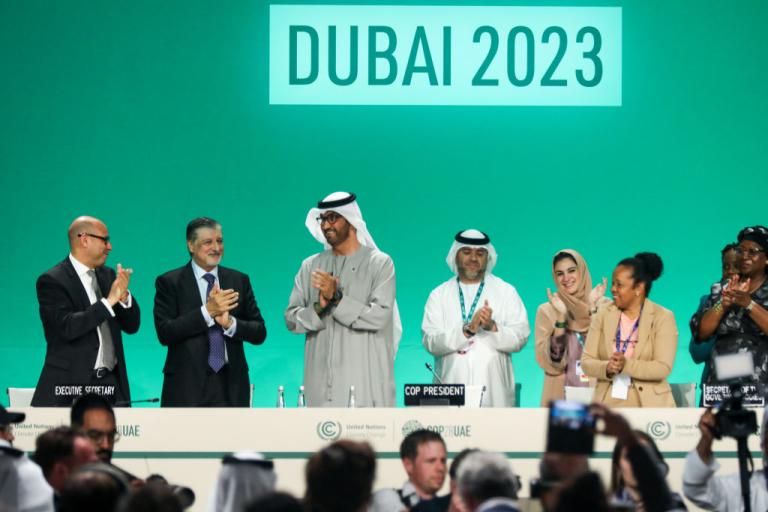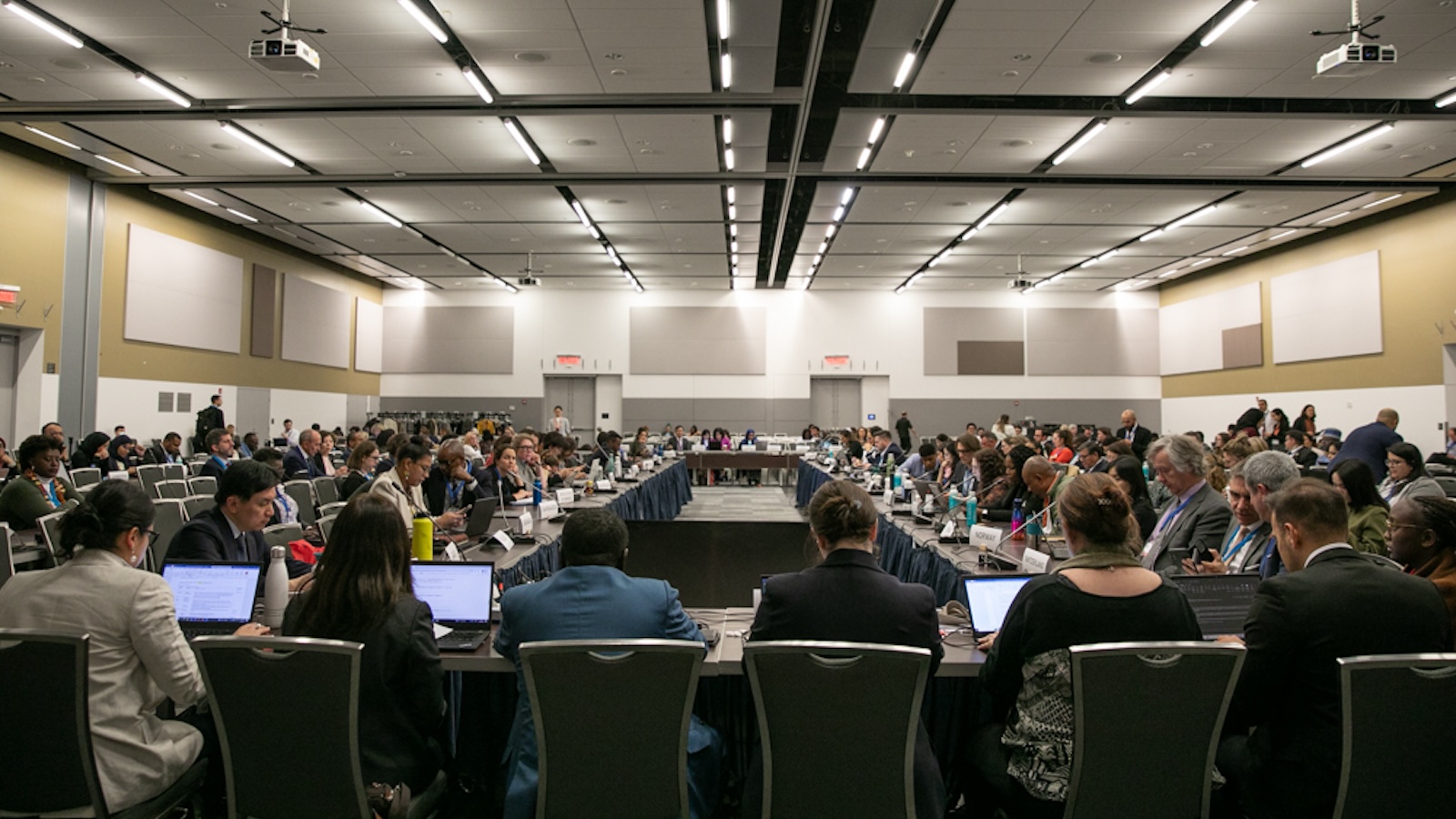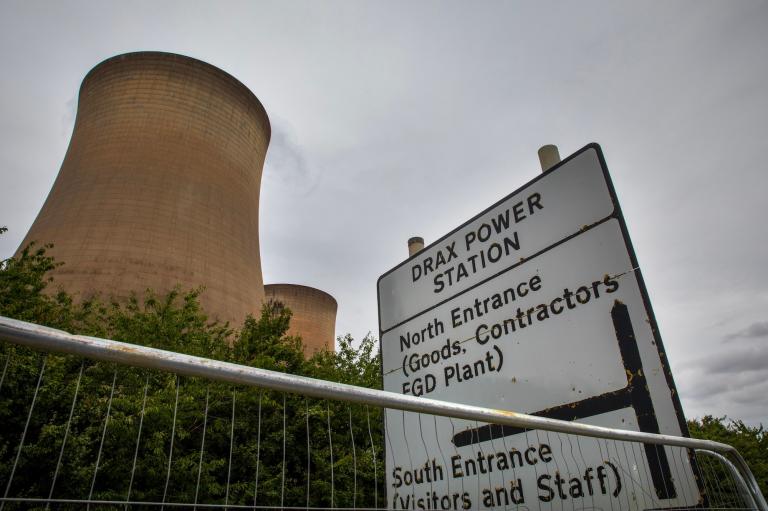Negotiators wrapped up the fourth round of formal discussions over the United Nations’ global plastics treaty early on Tuesday morning, inching closer to a final agreement that’s intended to “end plastic pollution.”
Delegates made important progress on the treaty, the final version of which is due by the end of the year. They pared down a lengthy draft of the text and agreed on a formal agenda for “intersessional” work ahead of the next — and final — meeting, in Busan, South Korea, scheduled for November 25. That work will involve critical issues around funding the treaty’s provisions and identifying plastic-related chemicals that should be restricted.
The agenda, however, doesn’t mention the elephant in the room: whether and how the treaty will limit plastic production.
“Nothing happened that was particularly surprising, but this outcome is still quite demoralizing,” said Chris Dixon, an ocean campaign leader for the nonprofit Environmental Investigation Agency who attended the talks. Other groups called the outcome “disappointing” and said the negotiations had been “undermined by deep-rooted industry influence.”
Dixon and other environmental advocates have spent the past three meetings fighting for a treaty that addresses the “full life cycle” of plastics — meaning one that goes beyond waste management to limit the amount of plastic that’s made in the first place.
The world already produces more than 400 million metric tons of plastic per year, and fossil fuel companies are planning to dramatically increase that number over the next few decades. Plastics have been described as the fossil fuel industry’s “plan B” as the world pivots away from using oil and gas in transportation and electricity generation. This could have dire implications not only for plastic pollution but for the climate; according to a recent study, greenhouse gas emissions from growing plastic production could eat up one-fifth of the world’s remaining carbon budget by 2050.
Just because production limits aren’t on the agenda for ad hoc working groups, however, doesn’t mean they’re out of the treaty; it just means delegates may arrive in Busan less prepared to discuss technical concepts related to plastics manufacturing. Language about the “full life cycle” of plastics is still in the treaty’s mandate — which countries agreed on in 2022 — and throughout the draft text. Countries can also host unofficial discussions on the topic between now and November.
There’s already widespread support for addressing plastic production in the treaty. Dozens of countries supported a statement presented by Rwanda and Peru last week saying that a global plastic reduction target should be “a North Star” for the treaty. The paper suggested reducing production by 40 percent below 2025 levels by 2040. Another declaration, published on Monday and signed by 28 countries, called for the treaty to “achieve sustainable levels of production of primary plastic polymers.”
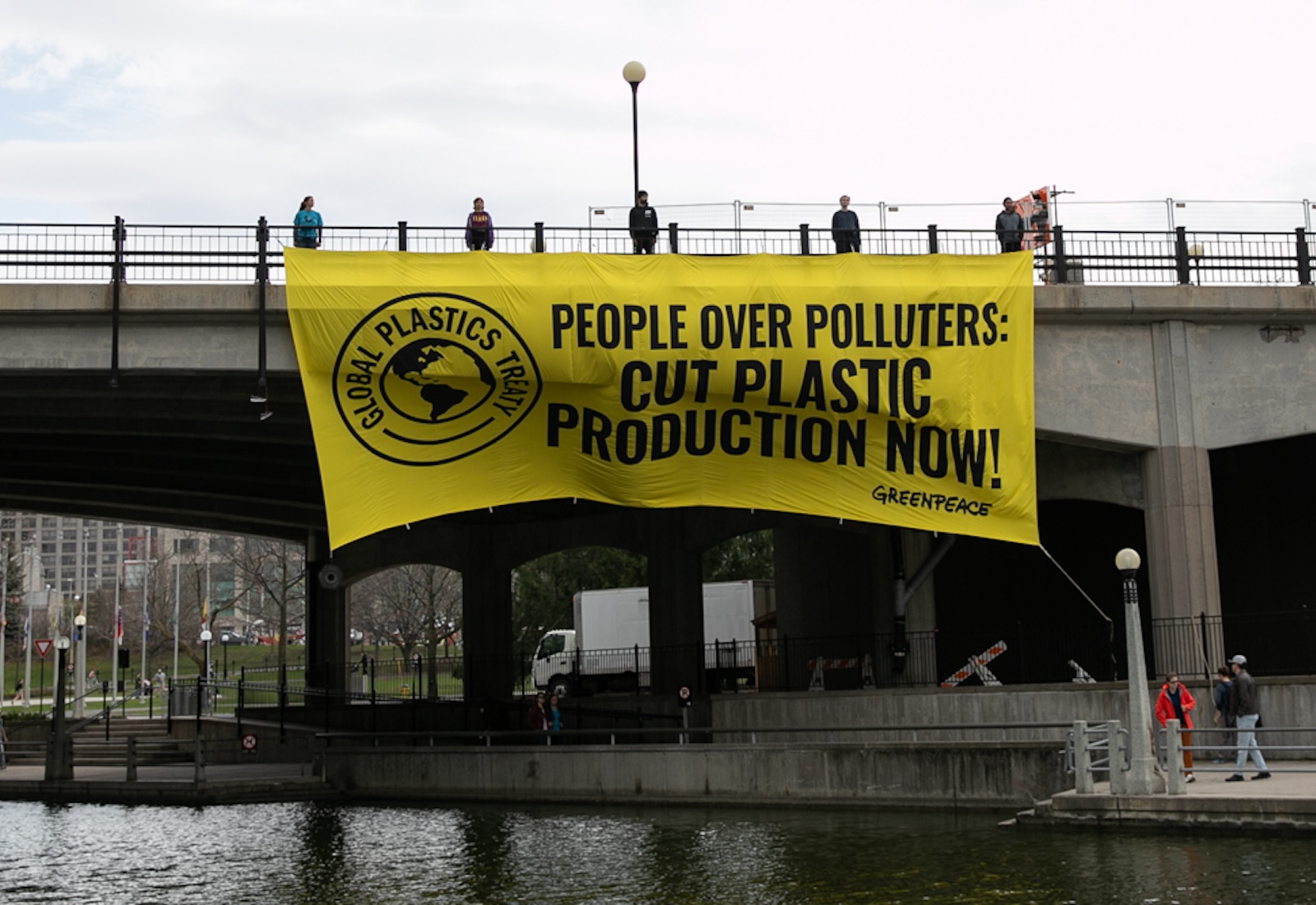
Dixon said translating that support into binding treaty text is a matter of “political commitment.” On Monday, production was “the first topic to get dropped” as delegates scrambled to agree on an agenda for intersessional work, she said. They were trying to avoid a repeat of the previous conference, which ended with no agenda at all.
Santos Virgilio, a delegate representing Angola, said during a panel on Monday that it is “too early to say” how his country and others will coax oil-producing states into accepting treaty provisions on plastic production. Saudi Arabia, Kuwait, and Qatar are among the countries most vociferously opposed to addressing plastic production as part of the treaty. Plastics industry lobbying groups also turned out in full force at the negotiating session to oppose production caps.
Chris Jahn, council secretary of the International Council of Chemical Associations, said in a statement on Monday that the industry is “fully committed to a legally binding agreement all countries can join that ends plastic pollution without eliminating the massive societal benefits plastics provide for a healthier and more sustainable world.”
Industry groups used the convening as a public relations opportunity, touting the benefits of plastic in ads placed throughout Ottawa. In a hotel, one collection of ads said plastics “save lives,” “deliver water,” and “reduce food waste.”
The United States has also resisted plastic production limits as part of the treaty. A State Department official told the Financial Times on Tuesday that “overly prescriptive approaches” could alienate “major producers or consumers of plastics.” Instead of cutting the supply of plastics, the U.S. wants to focus on reducing demand and improving infrastructure for recycling and reuse.
Despite frustrations, several observers noted a promising shift in the tone at this week’s negotiating session, compared to the previous meeting. “There was a different energy, it was more collaborative,” said Erin Simon, the vice president and head of plastic waste and business for the environmental nonprofit WWF. Bjorn Beeler, the general manager and international coordinator for the nonprofit International Pollutants Elimination Network, said it was “very significant” that the delegates were able to move from a 70-page “zero draft” of the treaty — a laundry list of options meant to represent everybody’s viewpoints — to a more formal version that’s been vetted by negotiators.
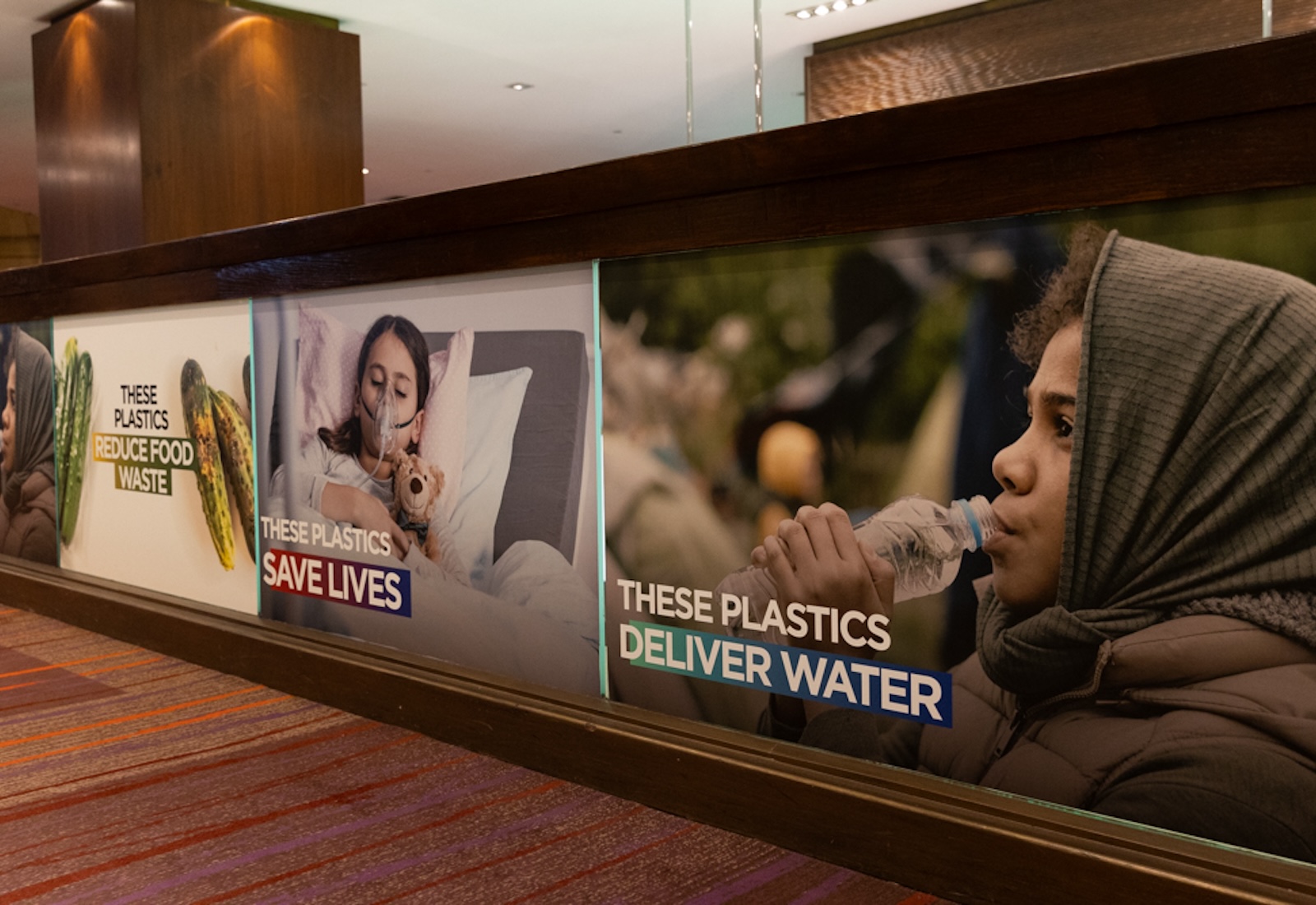
All of the most ambitious provisions of the treaty are still in the newly updated draft, Beeler said, meaning they’re still up for discussion. He also noted growing support for health-related aspects of the treaty, particularly a provision to limit potentially dangerous chemicals that are commonly added to plastics. Delegates agreed to create an expert group to focus on this topic during intersessional work. They tasked it with proposing a framework to identify the most problematic types of plastic and plastic-related chemicals, as well as product designs that increase plastic products’ recycling and reuse potential.
Although countries disagree on whether certain substances should be banned or just restricted, and which criteria should be used to identify such substances, there is more convergence on regulating chemicals than on most other issues. Even Iraq, a major oil producer, submitted a statement supporting the creation of two lists of banned and restricted plastic chemicals.
“Everyone knows there are hazardous chemicals in plastics,” Beeler said. Griffins Ochieng, the executive director of the Kenya-based Center for Environmental Justice and Development, said in a statement that a global plastics treaty that addresses chemicals in plastics “is an impetus toward eradicating plastic pollution.”
One other expert group will focus on finance — where to get funding to help developing countries transition away from single-use plastics and test plastics for hazardous chemicals, among other treaty objectives, and how to distribute that money. Some countries and many environmental groups support the creation of a dedicated fund to help poor countries implement the provisions of the plastics treaty. Others say it would be simpler to use an existing mechanism like the Global Environmental Facility, a multilateral fund that provides grants to support government projects.
With eight months remaining in 2024, delegates have a lot of work ahead of them if they want to wrap up a treaty by the end of the year, which is the goal countries agreed on when they decided to write a treaty in March 2022. Even if the treaty does not take its most ambitious form, it could still have a big impact. Policies to disincentivize the use of virgin plastic, for instance — like recycled content requirements — are relatively noncontroversial, and they could indirectly limit plastic production. Beeler said it’s also possible that new requirements on the measurement and disclosure of plastic production could eventually lead to production limits after the treaty is ratified.
Simon, with WWF, said she feels cautiously hopeful following this week’s meeting. The conference was “not a failure, and definitely not a win.” she said. “But it is progress.”
